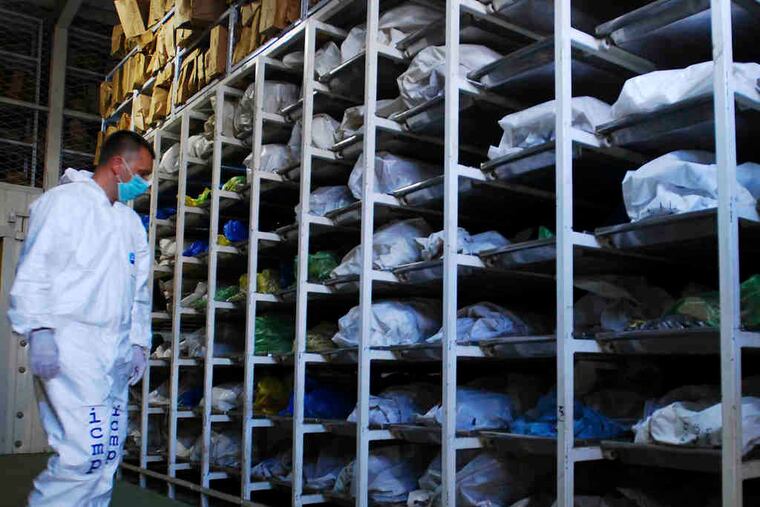Daring early-morning raid nabbed Mladic
The long-sought fugitive now waits in a jail cell in Belgrade for possible extradition to the Hague.

BELGRADE, Serbia - The old man, hobbled by pain, couldn't coax himself to sleep. He got out of bed just before dawn, pulled on a blue baseball cap, and headed for a walk in the garden. Maybe some fresh air would clear his head.
At the same time, four jeeps carrying about 20 masked men in black fatigues rolled quietly into the remote northern Serbian village of Lazarevo, hoping to surprise a quarry that had eluded them for 16 years.
They pulled up to four houses simultaneously - all owned by relatives of one of the world's most-wanted men.
As the frail old man moved toward the door, four of the men jumped over a fence and burst in, grabbing him and pushing him roughly to the floor.
"Identify yourself!" one shouted.
The old man managed a whisper: "I'm Ratko Mladic."
An excruciating manhunt had ended quietly as the sun rose over the Serbian fields.
The account, provided by three Serbian police officials on condition of anonymity because of the sensitivity of the information, was the most detailed to date of the operation that captured the man allegedly responsible for Europe's worst massacre since World War II.
Mladic, the officials said, moved to the largely Bosnian Serb village of Lazarevo about two years ago, figuring he could be safe with his relatives.
There, he lived an anonymous, low-key lifestyle, forgoing fancy restaurants and drinking clubs and staying well out of the public eye.
His disappearance was aided by his changed appearance as he aged and his health deteriorated. The man who appeared in court Friday bore little resemblance to the robust, uniformed figure strutting in front of the cameras during the Bosnian war.
Police said they had no tip that Mladic was hiding out in Lazarevo, and no specific information about the house where he was found, other than that it was owned by a relative. The officers, who had been searching for Mladic across Serbia for years, had never been to Lazarevo.
They came at 5 a.m. Thursday, when most of the village's 2,000 residents were still asleep. The streets were virtually empty when the jeeps rolled in.
Police said Mladic was awake in the yellow brick house he rarely left because his body ached from a variety of ailments.
"Good work," Mladic told the officers, according to Serbian police chief Ivica Dacic. "You found the one you were looking for."
"Don't do something funny," an officer told the old man, gesturing to his two loaded pistols, according to the three police officials.
Mladic handed over his weapons dutifully.
The officers pushed Mladic into one of the jeeps and raced away, the vehicle's heavy tires sending fine dust into the air.
He was headed for the capital, Belgrade, and possibly on to the Hague in the Netherlands, where the U.N. war crimes tribunal has been waiting for him since 1995.
Mladic was taken to court on Thursday and Friday, when a judge ruled he was fit enough to be extradited. Mladic's lawyer plans to appeal on Monday.
In the meantime, Mladic asked for fresh strawberries to be brought to his cell, along with novels by Leo Tolstoy and a television set, a judicial official said, also on condition of anonymity.
The strawberries were provided; it wasn't immediately clear whether he'd been given the books and TV.
One request was definitely denied, the official said: An appeal to visit the Belgrade grave of Mladic's daughter Ana.
She killed herself in 1994 with her father's favorite pistol.